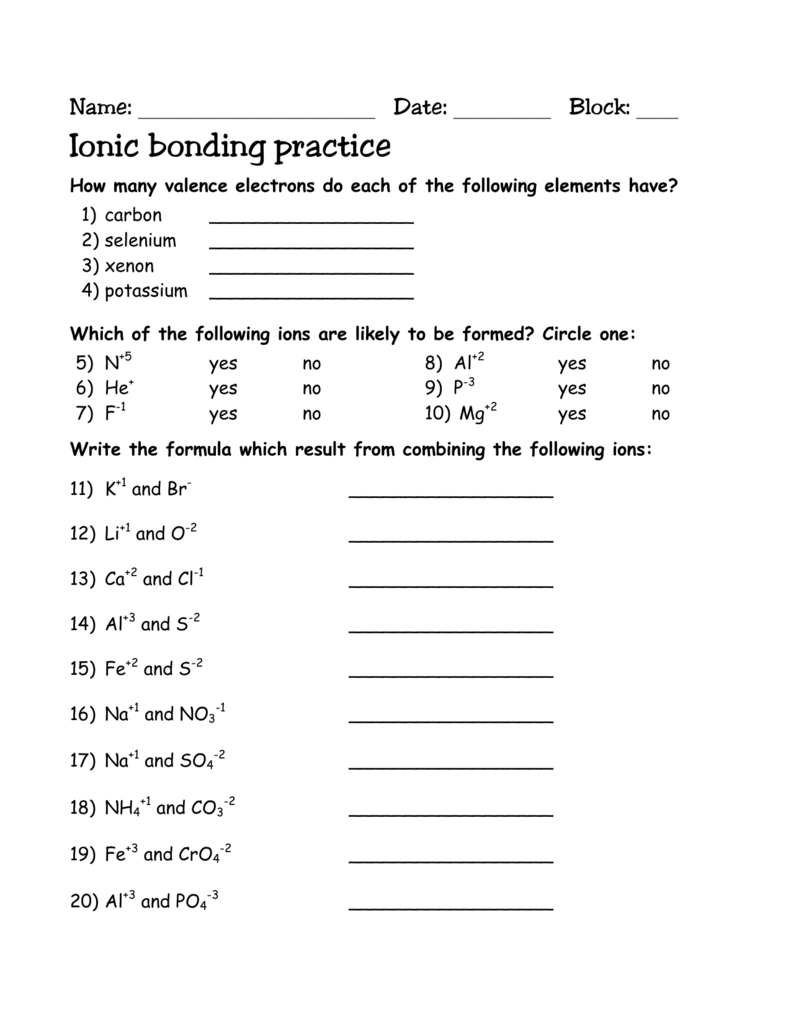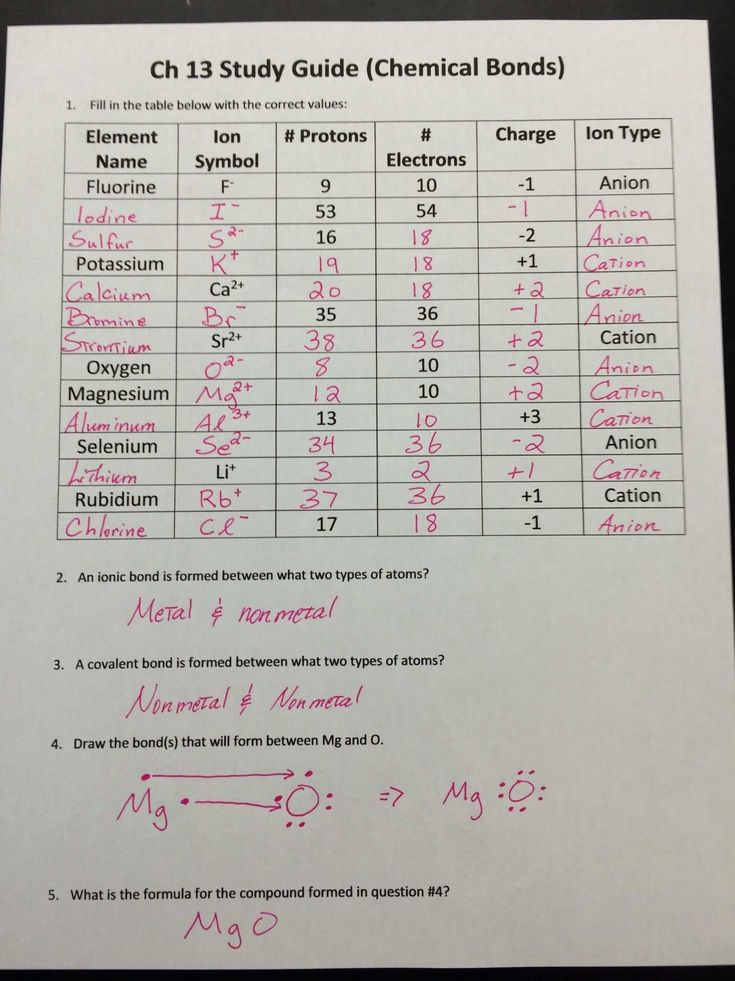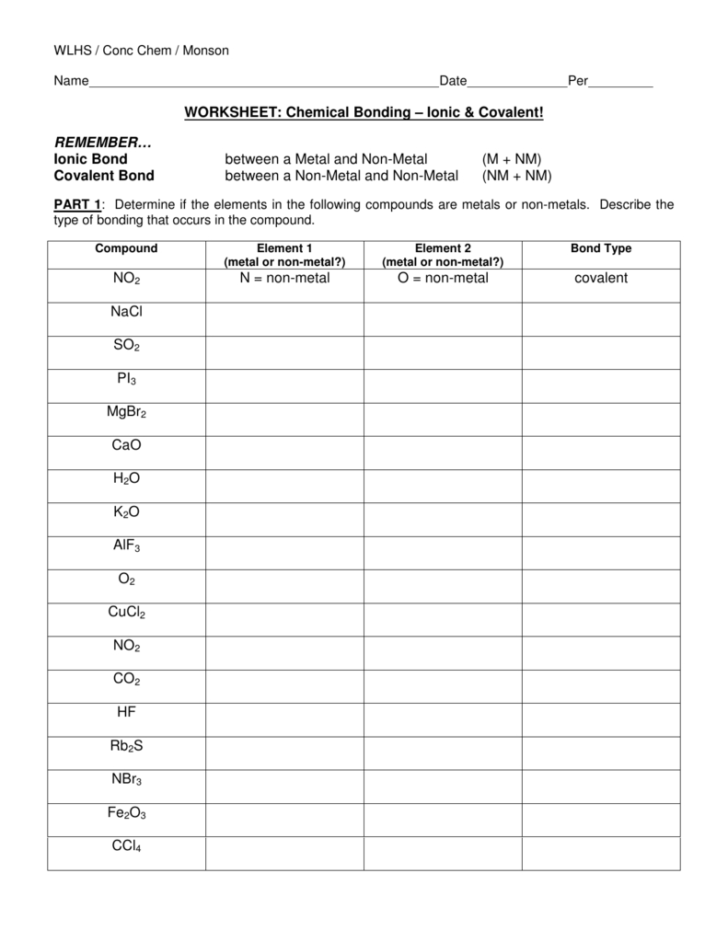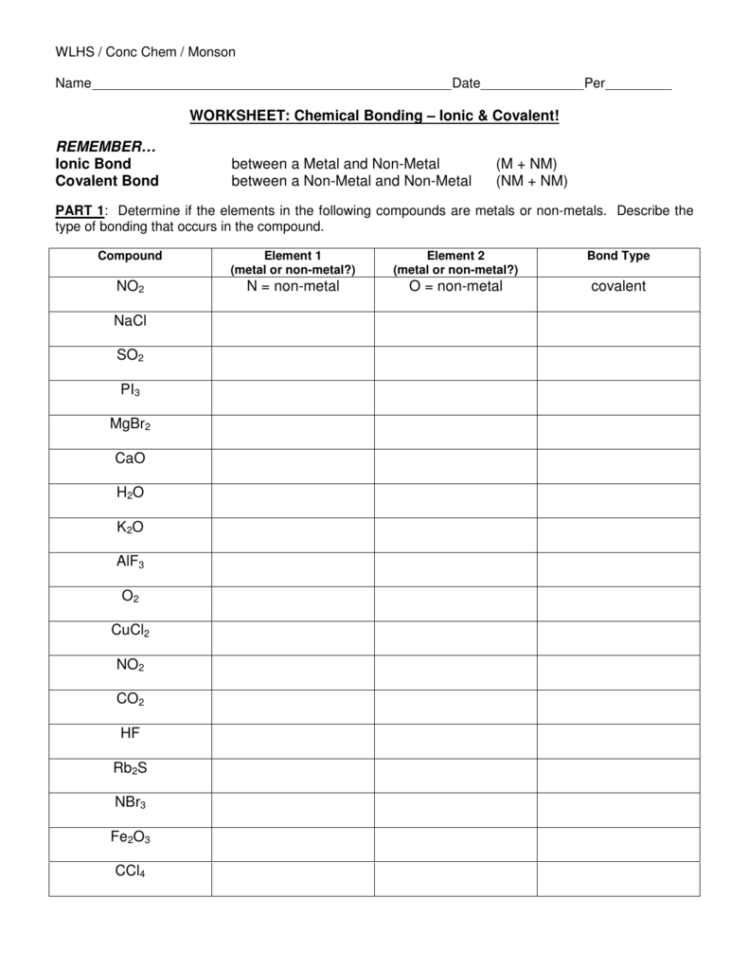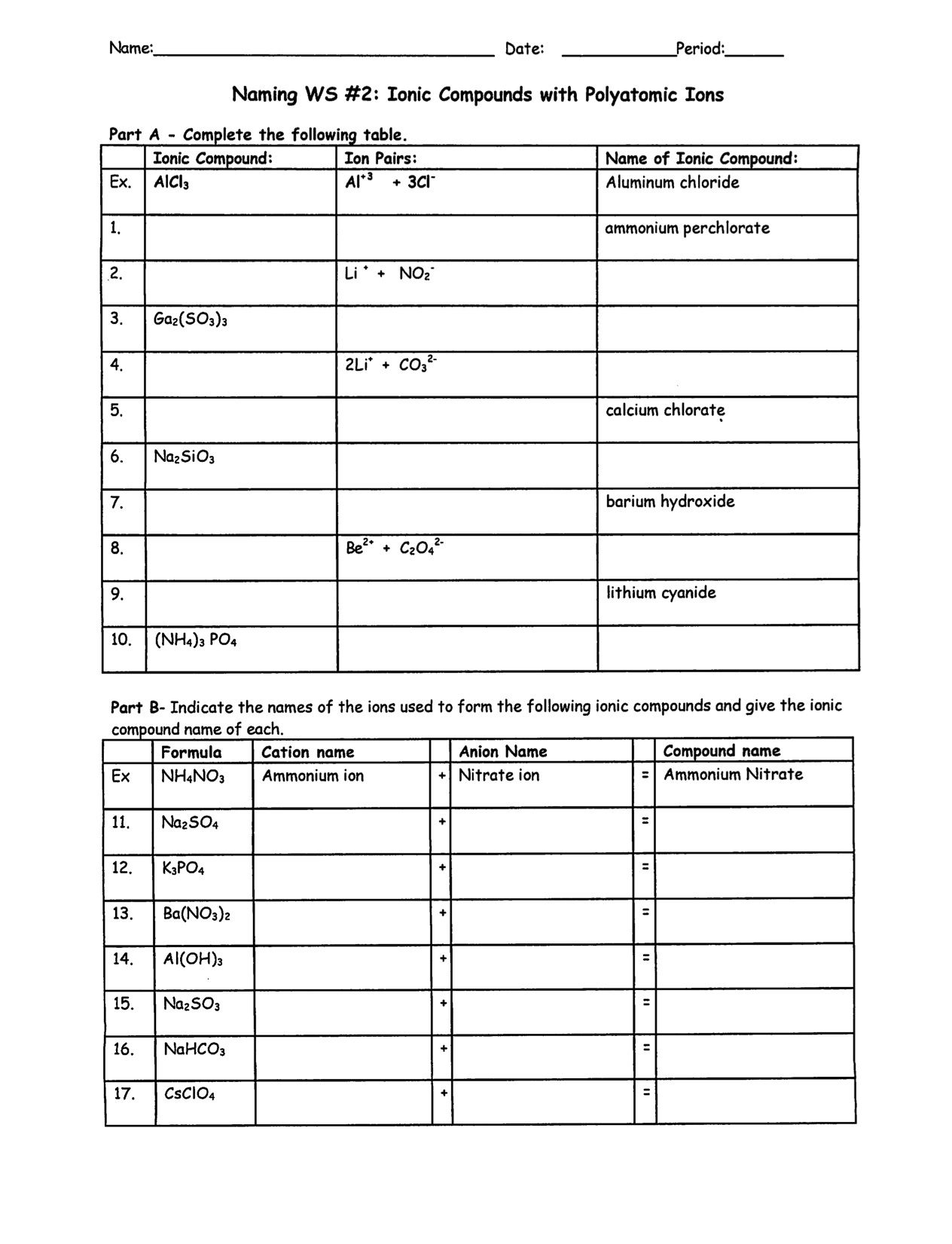Chemical Bonding Ionic And Covalent Worksheet
Chemical Bonding Ionic And Covalent Worksheet - Draw the bond structure using chemical symbols and lines. Complete the table comparing ionic compounds and covalent compounds. Model 1 substances are called ionic compounds and model 2 substances are called covalent molecules. Write a simple rule that will allow. In a covalent bond, two atoms share their electrons, in order for each to gain a noble gas. Use one line for each pair of electrons that is shared.
In a covalent bond, two atoms share their electrons, in order for each to gain a noble gas. Model 1 substances are called ionic compounds and model 2 substances are called covalent molecules. Use one line for each pair of electrons that is shared. Write a simple rule that will allow. Draw the bond structure using chemical symbols and lines. Complete the table comparing ionic compounds and covalent compounds.
Complete the table comparing ionic compounds and covalent compounds. Use one line for each pair of electrons that is shared. Model 1 substances are called ionic compounds and model 2 substances are called covalent molecules. Write a simple rule that will allow. Draw the bond structure using chemical symbols and lines. In a covalent bond, two atoms share their electrons, in order for each to gain a noble gas.
Chemical Bonds Ionic Bonds Worksheet Zip Worksheet
Complete the table comparing ionic compounds and covalent compounds. Write a simple rule that will allow. Use one line for each pair of electrons that is shared. Draw the bond structure using chemical symbols and lines. Model 1 substances are called ionic compounds and model 2 substances are called covalent molecules.
Chemical Bonding Ionic And Covalent Worksheet
Use one line for each pair of electrons that is shared. Write a simple rule that will allow. In a covalent bond, two atoms share their electrons, in order for each to gain a noble gas. Model 1 substances are called ionic compounds and model 2 substances are called covalent molecules. Complete the table comparing ionic compounds and covalent compounds.
30++ Worksheet Chemical Bonding Ionic And Covalent Worksheets Decoomo
Use one line for each pair of electrons that is shared. In a covalent bond, two atoms share their electrons, in order for each to gain a noble gas. Complete the table comparing ionic compounds and covalent compounds. Model 1 substances are called ionic compounds and model 2 substances are called covalent molecules. Write a simple rule that will allow.
Worksheet Chemical Bonding Ionic And Covalent Answers —
Write a simple rule that will allow. In a covalent bond, two atoms share their electrons, in order for each to gain a noble gas. Use one line for each pair of electrons that is shared. Complete the table comparing ionic compounds and covalent compounds. Draw the bond structure using chemical symbols and lines.
Ionic And Covalent Bonding Worksheet Gcse
Draw the bond structure using chemical symbols and lines. Write a simple rule that will allow. Use one line for each pair of electrons that is shared. In a covalent bond, two atoms share their electrons, in order for each to gain a noble gas. Model 1 substances are called ionic compounds and model 2 substances are called covalent molecules.
Naming Ionic and Covalent Compounds Worksheet
Complete the table comparing ionic compounds and covalent compounds. Draw the bond structure using chemical symbols and lines. Use one line for each pair of electrons that is shared. Model 1 substances are called ionic compounds and model 2 substances are called covalent molecules. In a covalent bond, two atoms share their electrons, in order for each to gain a.
Ionic Bonding Worksheet Answers Kidsworksheetfun
Model 1 substances are called ionic compounds and model 2 substances are called covalent molecules. Write a simple rule that will allow. Complete the table comparing ionic compounds and covalent compounds. Use one line for each pair of electrons that is shared. Draw the bond structure using chemical symbols and lines.
Chemical Bonding Review Worksheet Answers
Model 1 substances are called ionic compounds and model 2 substances are called covalent molecules. Use one line for each pair of electrons that is shared. Write a simple rule that will allow. Draw the bond structure using chemical symbols and lines. Complete the table comparing ionic compounds and covalent compounds.
Chemical Bondinganswers Chemical Bonding Worksheet Ionic Bond
Model 1 substances are called ionic compounds and model 2 substances are called covalent molecules. Write a simple rule that will allow. Draw the bond structure using chemical symbols and lines. In a covalent bond, two atoms share their electrons, in order for each to gain a noble gas. Complete the table comparing ionic compounds and covalent compounds.
Worksheet Chemical Bonding Ionic And Covalent Answers Part 2 —
Use one line for each pair of electrons that is shared. In a covalent bond, two atoms share their electrons, in order for each to gain a noble gas. Draw the bond structure using chemical symbols and lines. Complete the table comparing ionic compounds and covalent compounds. Model 1 substances are called ionic compounds and model 2 substances are called.
Use One Line For Each Pair Of Electrons That Is Shared.
Draw the bond structure using chemical symbols and lines. Complete the table comparing ionic compounds and covalent compounds. In a covalent bond, two atoms share their electrons, in order for each to gain a noble gas. Model 1 substances are called ionic compounds and model 2 substances are called covalent molecules.
